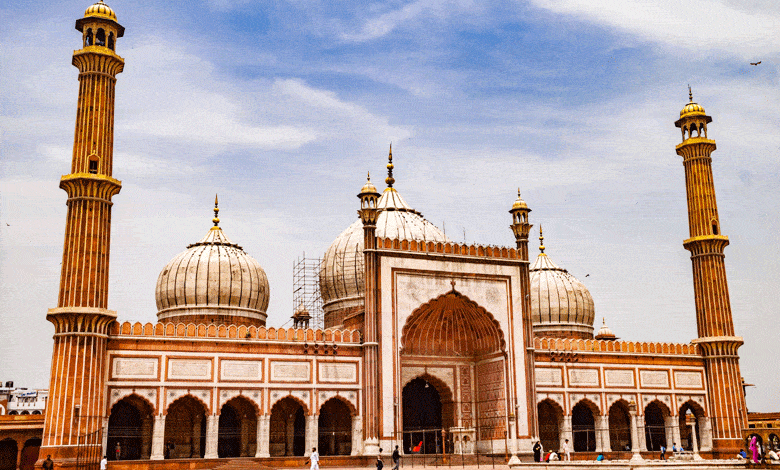ASI Survey Demanded for Delhi’s Iconic Jama Masjid by Hindu Sena
Gupta has urged the ASI to preserve any artifacts or remains found during the survey and to publicize the findings to present what he claims would be a more accurate historical narrative. The ASI has not yet issued a statement regarding the request.

New Delhi: The National President of Hindu Sena, Vishnu Gupta, has formally petitioned the Director General of the Archaeological Survey of India (ASI) to conduct a detailed survey of Delhi’s iconic Jama Masjid. Gupta has claimed that the mosque, built by Mughal Emperor Shah Jahan between 1644 and 1656, was constructed over the ruins of Hindu temples from Jodhpur and Udaipur allegedly destroyed by Aurangzeb.
In his letter to the ASI, Gupta alleges that idols of Hindu deities were not only desecrated but also incorporated into the mosque’s construction, with some purportedly buried beneath its stairs as an affront to Hindu sentiments. He argues that a thorough investigation could uncover “hidden truths” about the site’s origins.
Table of Contents
Also Read: Telangana Govt Boosts HYDRA Operations with ₹50 Crore Funding
Call for Preservation and Transparency
Gupta has urged the ASI to preserve any artifacts or remains found during the survey and to publicize the findings to present what he claims would be a more accurate historical narrative. The ASI has not yet issued a statement regarding the request.
Jama Masjid: A Symbol of Mughal Grandeur
Jama Masjid, also known as Masjid-i Jehan-Numa, is one of the largest mosques in India and an iconic example of Mughal architecture. Built with red sandstone and white marble accents, it features three large gates, three domes, two minarets, and a vast courtyard capable of accommodating up to 25,000 worshippers. The mosque is a prominent cultural and religious center, attracting tourists and devotees alike.
Ongoing Controversies Over Religious Sites in India
This demand for a survey comes amidst a series of similar disputes across India, where mosques are alleged to have been built over Hindu temples. Prominent cases include:
- Gyanvapi Mosque in Varanasi: Allegedly constructed over the ruins of a Kashi Vishwanath temple.
- Shahi Idgah Mosque in Mathura: Claimed to have replaced a temple dedicated to Lord Krishna.
These disputes echo the contentious history of the Babri Masjid in Ayodhya, demolished in 1992 amid claims that it was built on Lord Ram’s birthplace. The Supreme Court’s 2019 verdict awarded the site to Hindus for temple construction, intensifying debates over similar claims elsewhere.
Legal Implications
The Places of Worship (Special Provisions) Act, 1991, prohibits the alteration of the religious character of any place of worship as it stood on August 15, 1947, to maintain communal harmony. However, this Act has faced legal challenges, especially concerning cases like Gyanvapi and Shahi Idgah.
The Jama Masjid survey request adds another layer to the ongoing discussions about India’s religious and cultural heritage, sparking debates over the balance between historical inquiry and communal harmony.
What’s Next?
The ASI’s decision on the matter will likely have significant implications for similar disputes across the country, potentially setting a precedent for the examination of contested religious sites. For now, all eyes remain on the government and ASI’s response to Hindu Sena’s demand.
